Evening falls over the bush in WA’s Pilbara region.
Author | Carmelle Wilkinson
WARNING: The following article contains information about the Stolen Generations that may cause sadness or distress.
Hiding in bushland on the outskirts of Roebourne in WA’s north-west, Trish and her three siblings huddle together from the cold, in fear of being caught by the “white men”.
It is the dead of night, and the vast wilderness is empty and still, with the silence broken only by the cries of her baby brother wailing for their Mum.
The year is 1955, and at that time in Australia, First Nations children like Curtin’s Inaugural Moorditj Yorga Scholarship Coordinator Trish Hill-Wall, were being forcibly taken from their families by Australian government agencies and church missions.

Curtin’s Inaugural Moorditj Yorga Scholarship Coordinator Trish Hill-Wall shares her story as a survivor of the Stolen Generations.
Under the policy of assimilation, it is estimated about 100,000 Aboriginal and Torres Strait Islander children (or one in three) were removed from their communities between 1910-1970 and placed in orphanages or non-Aboriginal foster homes.
Children removed during this dark period in Australia’s history became known as the Stolen Generations.
Taken by the police while in their homes, on their way to or from school, or while playing in their front yards, the removal of the children was based on the misguided assumption that their lives would be improved if they were successfully assimilated and became part of white society.
Stripped of their cultural connections and often given a new identity, many children endured years of abuse and neglect at the hands of their new caretakers.
Only two and a half years old at the time, Trish shares traumatic flashbacks from when she was taken.
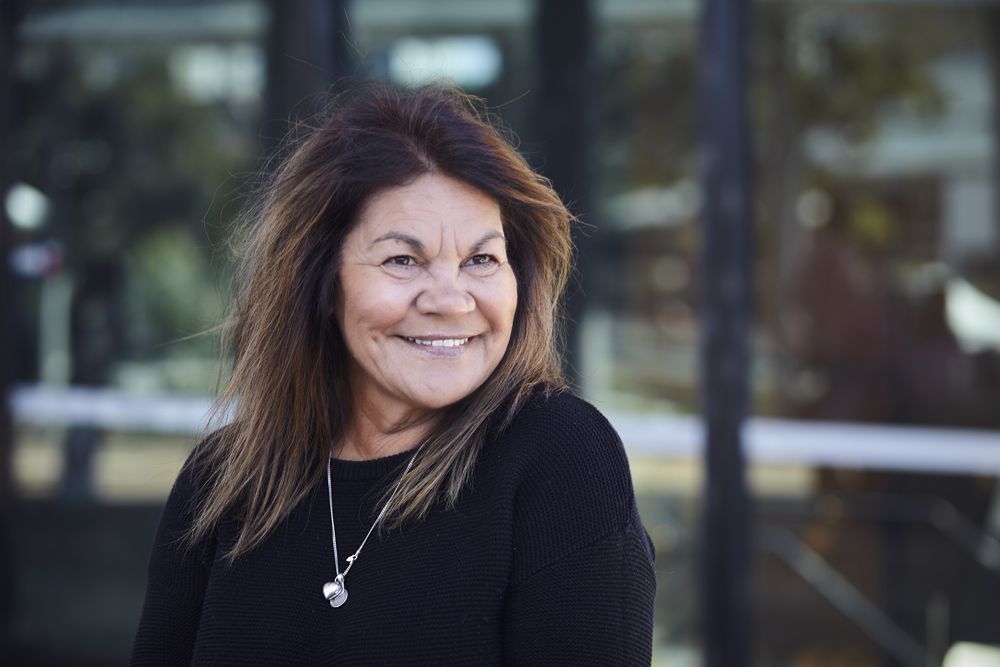
Despite her interrupted childhood, Trish has a positive outlook on life, and attributes her happiness to strong family roots and a love for education. Credit: Camera Story – a charitable organisation that champions positive photography, based in the Kimberley region of WA.
“If you’ve ever seen the movie Rabbit Proof Fence. That’s what it was like,’’ she said.
“Terrified for our safety my Mum and Dad sent us kids to hide in the bush with some bush tucker for a few days.
“I don’t remember how far we walked, but I remember my two older sisters took turns giving me piggyback rides. I can’t imagine we were rugged up or dressed appropriately for such a journey either and it can get quite cold in Roebourne at night.”
After three chilly nights and with the children growing more fearful, a decision was made to return home.
However, their arrival home was ill-timed, and when they returned the police were waiting for them with paperwork in hand.
“The flight to Perth was my first time on a plane and it was awful. I was told by my eldest sister Barbara, who has since passed, that I was violently sick and cried most of the way,’’ Trish said.
On arrival in Perth, the siblings were taken to the Mount Lawley Receiving Home, where they were doused with cold water and scrubbed with a steel wool brush.
“Back in those days they used to think by rubbing hard enough they could remove the colour of our skin,’’ Trish said.
“My hair was also washed with kerosene, and we were kept in cages for days.”
Known only by a number from that moment on, Trish’s past identity was swiftly erased.
Following a short time at the Mount Lawley Receiving Home, Trish and her sisters were separated from their baby brother and sent to Sister Kate’s Children’s Home in Queens Park, where Trish endured years of sexual and physical abuse.
“It was a terrible place. I was sexually abused from the age of two until I was nine and took many beatings, sometimes with a strap, other times a piece of wood,’’ she said.
“One day I was hospitalised from the beatings and sexual abuse.”
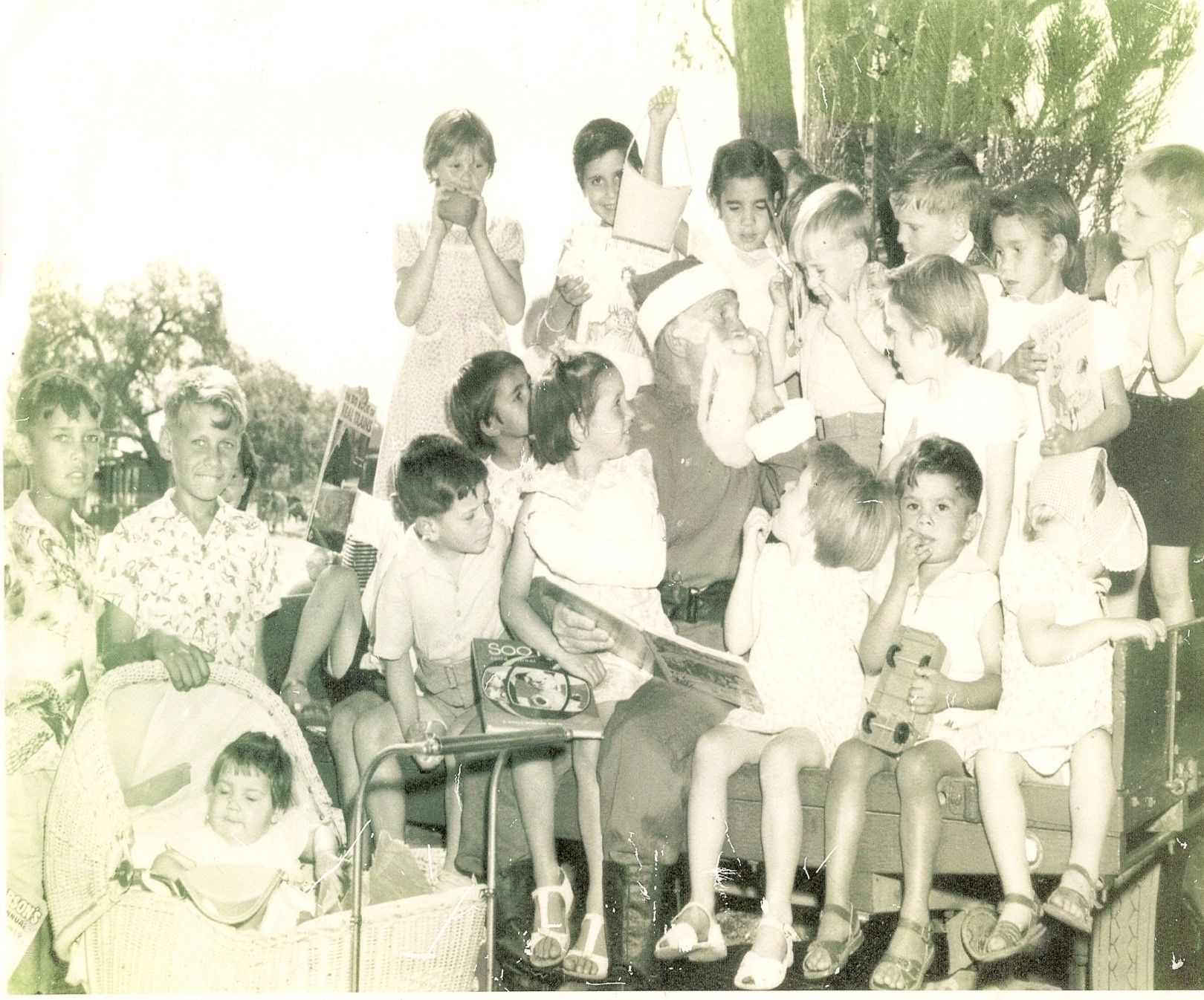
Children at Sister Kate’s Children’s Home in Queens Park in the 1950s.
Trish said despite her painful past, she never lost her fiery spirit, and harboured no anger or hate.
“My Mum was also stolen generation and when she was 12 years old, she was hit by a truck trying to escape which left her seriously injured and needing a metal plate in her head.
“You could say her strong-willed nature rubbed off on me,’’ Trish said.
Now a strong, resilient woman, Trish reflects on her experience as a survivor of the Stolen Generations.
“My experience was wretched, and I could easily have become a product of my history, and turn to suicide, alcohol or drugs, but I chose not to,’’ she said.
“Instead, I turned to education. An outlet that has given my life purpose and put me on the path to recovery and healing.”
Now 69 years old, the proud Mum of four and grandmother of nine is a shining light for those around her, including students in Curtin’s Moorditj Yorga Program for mature-age Aboriginal and Torres Strait Islander women.

‘Moorditj yorga’ means ‘strong woman’ in the Nyungar language of Western Australia’s South West.
As coordinator and mentor, she provides wrap-around pastoral care, ensuring students are settling into tertiary life, succeeding in their studies and balancing study and cultural obligations.
“I feel blessed and honoured to guide these incredible women through their university studies. I was a mature-aged student myself with four young children, so I am aware of the struggles, pressures, and family obligations Aboriginal women face, and know how important it is to feel supported and connected,’’ she said.
“My dream is to empower Aboriginal women as they embark on their educational journey of discovery.”
A highly respected member of the Curtin community, Trish attained her degree in Applied Science in her late forties, majoring in Mental Health.
“A year into my degree at Curtin, I fell in love with education. I was initially drawn to mental health for my own personal reasons, but I soon discovered a passion for teaching, and I became really excited about helping others through their education journey,’’ she said.
“Following my graduation at Curtin in 2002, I won a scholarship to study teaching at Murdoch University, before landing my first teaching job at Curtin University as coordinator of mental health for the Centre for Aboriginal Studies (CAS).
“I’ve also had the absolute pleasure and joy over the years to lecture alongside my son Dr Johnathan Bullen, who is a senior lecturer at Curtin Medical School.”
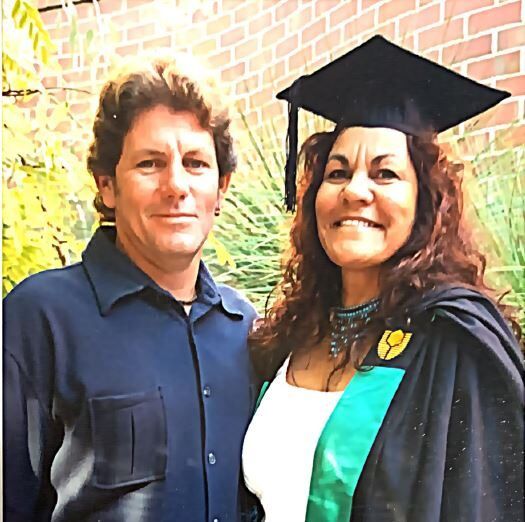

Trish with her husband Matt at her graduation ceremony in 2002, and with two of her grannies.
Born in Collie, with family connections to Wadani country in the South West of WA, Trish is a firm believer in the transformative power of learning.
“Writing papers and curriculums, immersing myself in educational books and looking at ways of engaging students so they can achieve a higher education – that all motivates me,’’ she said.
“For me, the Moorditj Yorga Scholarship is about changing the landscape for Aboriginal people. Too often our people look through one lens and that’s their own. But I want my students to see through a plethora of lenses and find different, creative ways of working together with the wider community of Curtin University.
“Sitting in my robe at graduation, with my family in the crowd, was the most amazing feeling in the world. I was so incredibly proud of myself. Never in my wildest dreams did I ever imagine I could achieve a degree, and then to receive a Vice Chancellor award for my discipline, well that was the icing on the cake.
“I look forward to the day when I can sit in the crowd and watch my students graduate.”
Under Trish’s guidance, moorditj yorga’s (strong women) are encouraged to step out of their comfort zone and overcome the cultural barriers which may be blocking their path to success.

Curtin’s Moorditj Yorga Program empowers mature-aged Aboriginal women to succeed at university and attain an undergraduate degree.
“I want them to know they can be anything and do anything, the sky really is the limit. All they need to do is stand tall and ask for help if they need it. And if they fall, I am right here to support them,’’ she said.
“As their mentor, I hope to fuel their desire to learn – just as my foster sister Dorothy Outtrim did for me.”
When Trish was nine years old, she was fostered out to a family in Mosman Park, and it was here that a life-long bond with Dorothy began.
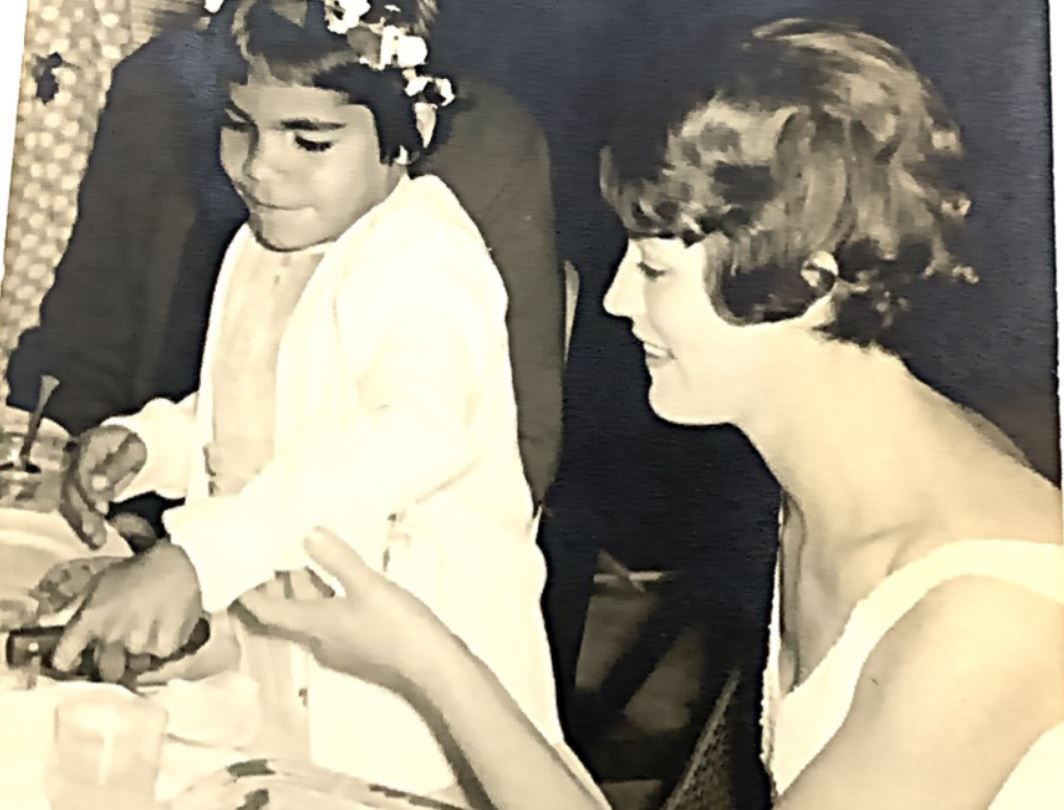
Trish helping her foster sister Dorothy Outtrim cut her birthday cake at her 21st birthday.
“Dorothy’s unconditional love and guidance over the years proved to be the positive influence I desperately craved,’’ Trish said.
“Now 83, Dorothy was the Inaugural Principal of Kalamunda Education Support Centre and has written books about behavioural issues and psychology. She would often share her love for education with me and would encourage me to study and be the person I wanted to be.
“I’m so grateful to have her in my life, she’s kept me grounded all these years and helped me build my self-confidence. She’s my mentor, my muse, my guru. I love her dearly.”
Married to her husband and love of her life Matt for 38 years, Trish attributes her inner peace and happiness to having strong family roots.
“Matt is such a wonderful man and has always been there for me. He’s my soul mate,’’ she said.
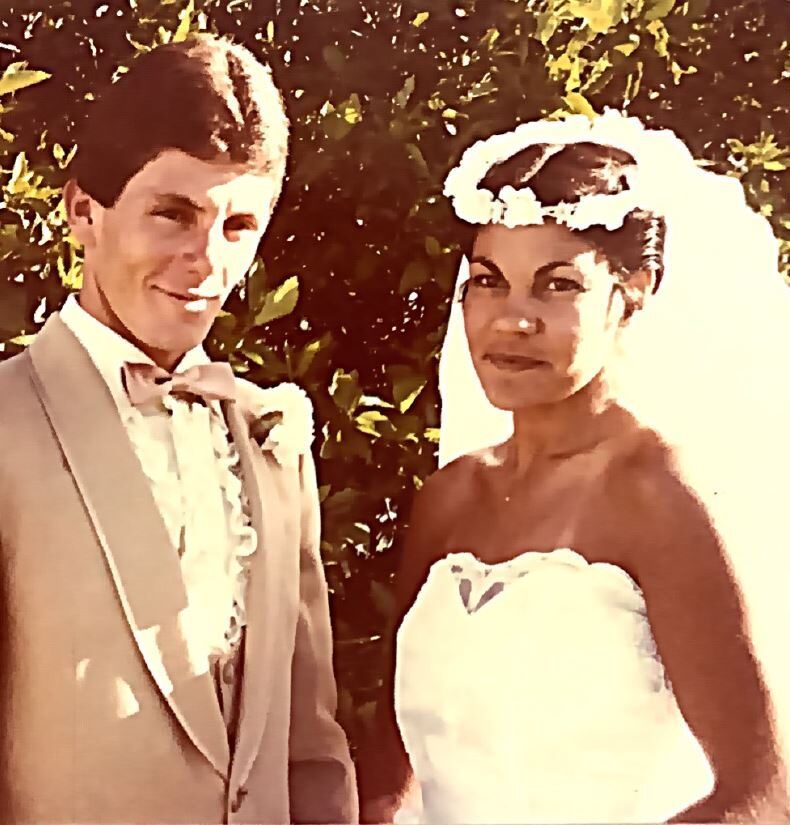

Trish and husband Matt on their wedding day and today.
Trish said seeing her children and grannies succeed in life filled her with immense joy, and she looked forward to their weekly Sunday lunch, where the family get together to reconnect and share a yarn after a long week.
“My daughter Clo, who is the senior executive curator at the Western Australian Art Gallery, said to me the other day, Mum I am so blessed that you’re a strong woman, because it has rubbed off on me. And I thought that was such a beautiful thing to say, because I don’t consider myself strong,’’ she said.
“In fact, when I finally met my Mum and Dad again after 30 years, I was such a scaredy cat.
“My older sisters had managed to track them down and I remember arriving at my nephew’s 21st birthday and noticing this handsome, stunning looking man on the veranda and straight away my stomach dropped.
“I knew it was my Dad. And as I walked up, he said “there you are my beautiful butterfly, I have been looking for you”. It was all too much to take in and instead of nuzzling myself in his chest and giving him the tightest embrace, I ran away, fearing if I did hug him, he would be taken from me again.
“The same thing happened a few months later when I met my Mum for the first time. She hopped out the car and ran up to me giving me the biggest hug, saying ‘I found you, I found you’, but I was numb. I wouldn’t allow myself to feel anything. I ended up having a panic attack I was so distraught.”
After their passing, Trish said it took some time before she could make peace with herself.
“The guilt I felt for rejecting them was consuming. I allowed myself time to cry and grieve and in the end, I realised they would have known exactly how I was feeling, and they wouldn’t have loved me any less.”
A valued member of Curtin and an inspiration to many who meet her, Trish has been granted access by Aboriginal Elders across Australia to walk across Country.
An incredible honour, and one that is not given lightly.

Trish has been granted permission to walk across Country by Australian Elders.
A passionate educator with so much to offer students, she is currently organising a two-day camping trip for her students in Collie next month, where they will get the opportunity to take part in a yarn circle and talk about any roadblocks that might be distracting them from their studies.
She is also exploring the possibility of starting a scholarship for Aboriginal males, where they can undertake careers across a wide range of sectors including nursing, psychology, and architecture.
“My dream before I go to the flowers is for my children and students to know their self-worth and always strive for greatness,’’ she said.
Since its inception in 2019, the MYS campaign has attracted more than $1.5M in donor commitments.
The program currently has 10 students, with Trish hoping to build on that number this year.
To find out more about Curtin’s Moorditj Yorga Scholarship Program please visit our website.
Author | Carmelle Wilkinson
___



